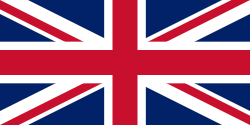| Great Britain at the 2002 Winter Paralympics | |
|---|---|
 | |
| IPC code | GBR |
| NPC | British Paralympic Association |
| Website | www |
| in Salt Lake City | |
| Competitors | 2 [1] in 1 sport |
| Medals Ranked =23rd |
|
| Winter Paralympics appearances (overview) | |
The United Kingdom of Great Britain and Northern Ireland competed at the 2002 Winter Paralympics held in Salt Lake City, Utah, United States, from 7 to 16 March 2002. The team was known by it shortened name of Great Britain, for identification purposes. The team was able to be made up of athletes from the whole United Kingdom; athletes from Northern Ireland, who elected to hold Irish citizenship under the pre-1999 article 2 of the Irish constitution, were eligible to represent either Great Britain or Ireland at the Paralympics. [2] However no Northern Irish athletes took part in the Winter Paralympics until 2010 in Vancouver. [3] In order to be eligible to take part in the Games athletes had to have a disability that fell into one of the six Paralympics disability categories.
Contents
Two British athletes competed, both in alpine skiing events, and no medals were won. The size of the team was a decrease from that which had entered previous Games, in the 1998 Winter Paralympics 20 British athletes had participated. [4] One reason for this is that whilst funding for the two athletes was provided by the British Paralympic Association, it totalled only £1,500 compared to the £4 million worth of funding available to British athletes at the 2002 Winter Olympics. [5]